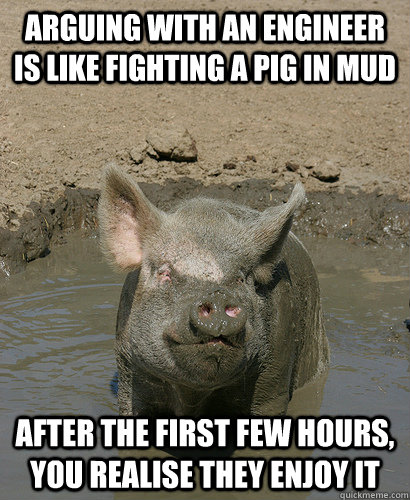Steve83
Bronco Guru
You're just arguing to argue. None of the things on your list contradict, except the 3rd. The rest are independent of each other.
An air void in grease doesn't hurt anything. If there's a void between 2 metal electrical terminals, electrical grease (unlike dielectric) is thin enough to wick in & fill it. No contradiction.
Sand is what you find on the beach. It can be many sizes, or filtered down to essentially 1 size (very fine). That's what I think is in dielectric, but I can't prove it. I don't think it's in electrical grease, and I can't prove that, either. The "silica" used in most silicone greases (including dielectric) is fumed silica, which is VERY different from "sand". I don't know that it's in electrical grease - I don't see anything on the Ford website to indicate one way or another. No contradiction.
You said Ford electrical grease isn't silicone - I didn't argue with you, but that doesn't mean I've seen any proof of it. I didn't see it on the Ford site I linked, or in any of your links. If I missed it, post the relevant link one more time. Either way - that's not me contradicting myself; it's just me NOT contradicting you when you contradict me.
I already addressed electrical grease being dielectric - I don't know that it is or isn't, but even if it is, that doesn't make it "dielectric grease". Electrical grease shares SOME properties with dielectric grease - that doesn't make them the same.
The position that dielectric grease is bad for electrical terminals isn't "my" position - it's just one that I agree with. It's Ford's position, and Permatex's position, and probably every other chemical engineer's position. It's certainly the position upheld by every dictionary & encyclopedia that contains the word "dielectric".
AFAIK, electrical grease may be pure PAO oil, without fumed silica. That would make sense to me, since it's so much thinner than dielectric grease. I acknowledge that MOST greases are shear-thinning, but I suspect dielectric could be shear-thickening - particularly at the film thickness present in a dielectric application (between a SSD & its heat sink). Either way, I've never expressed an opinion on viscosity in-use vs. viscosity during application. I don't see how it's relevant.
I don't see how any of the tripe you keep bringing up is relevant. You're ignoring the simple plain-English definition of "dielectric", and the fact that Ford went to the trouble & expense of not only specifying electrical grease, but also having it produced, and then recommending its use in specific applications. If it wasn't better for electrical terminals, why did they do all that? Assume everything I've posted is wrong - then explain why electrical grease exists. %)
An air void in grease doesn't hurt anything. If there's a void between 2 metal electrical terminals, electrical grease (unlike dielectric) is thin enough to wick in & fill it. No contradiction.
Sand is what you find on the beach. It can be many sizes, or filtered down to essentially 1 size (very fine). That's what I think is in dielectric, but I can't prove it. I don't think it's in electrical grease, and I can't prove that, either. The "silica" used in most silicone greases (including dielectric) is fumed silica, which is VERY different from "sand". I don't know that it's in electrical grease - I don't see anything on the Ford website to indicate one way or another. No contradiction.
You said Ford electrical grease isn't silicone - I didn't argue with you, but that doesn't mean I've seen any proof of it. I didn't see it on the Ford site I linked, or in any of your links. If I missed it, post the relevant link one more time. Either way - that's not me contradicting myself; it's just me NOT contradicting you when you contradict me.
I already addressed electrical grease being dielectric - I don't know that it is or isn't, but even if it is, that doesn't make it "dielectric grease". Electrical grease shares SOME properties with dielectric grease - that doesn't make them the same.
The position that dielectric grease is bad for electrical terminals isn't "my" position - it's just one that I agree with. It's Ford's position, and Permatex's position, and probably every other chemical engineer's position. It's certainly the position upheld by every dictionary & encyclopedia that contains the word "dielectric".
AFAIK, electrical grease may be pure PAO oil, without fumed silica. That would make sense to me, since it's so much thinner than dielectric grease. I acknowledge that MOST greases are shear-thinning, but I suspect dielectric could be shear-thickening - particularly at the film thickness present in a dielectric application (between a SSD & its heat sink). Either way, I've never expressed an opinion on viscosity in-use vs. viscosity during application. I don't see how it's relevant.
I don't see how any of the tripe you keep bringing up is relevant. You're ignoring the simple plain-English definition of "dielectric", and the fact that Ford went to the trouble & expense of not only specifying electrical grease, but also having it produced, and then recommending its use in specific applications. If it wasn't better for electrical terminals, why did they do all that? Assume everything I've posted is wrong - then explain why electrical grease exists. %)













